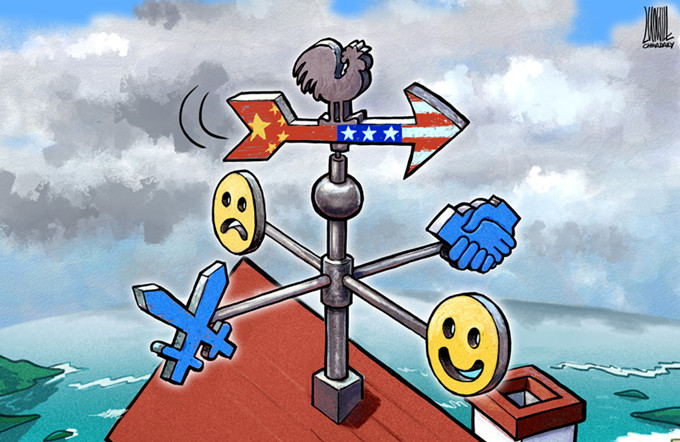Prelude to a water and economic crisis?
In addition, industrial accidents and illegal dumping of wastes often worsen the quality of water in rivers and lakes. Such incidents include the Songhua River toxic chemical spill in 2005, the algae bloom in Taihu Lake which polluted the source of drinking water for people of the surrounding areas in 2007 and the dumping of more than 13,000 pig carcasses in the Huangpu River earlier this year.
The government is aware of the challenges and the public is worried about the associated health and environmental costs of water pollution. Water pollution is a monumental problem today because relevant officials ignored it over the years. And it will not be easy to solve it in the short term.
Pollution, aggravated by urbanization and industrialization, has intensified water scarcity in China, and relevant governments have failed to properly implement the existing policies to protect water sources and fight pollution.
But new and more stringent standards on treatment of drinking water represent a good example of how to fight water pollution. According to new regulations, from July 2012, drinking water treatment plants in China have to measure up to 106 quality parameters compared with only 15 previously. If properly implemented, this could significantly improve the quality of drinking in the country.
But the success of the new regulations will depend on multiple issues, which include unifying the fragmented monitoring system; ensuring that there are enough personnel and laboratory facilities to properly test all the 106 parameters; guaranteeing reliable collection, analysis and interpretation of data; making sure a well-oiled infrastructure is in place to supply safe drinking water; and ascertaining that officials in charge of plants not complying with all the norms are punished.
China and its people deserve the fruits of fast economic growth. But water, air and other environmental problems, if not solved, could undermine their future course of development.
Cecilia Tortajada is the co-founder and president of the Third World Centre for Water Management and former president of the International Water Resources Association. Asit K. Biswas is distinguished visiting professor at Lee Kuan Yew School of Public Policy and co-founder of the Third World Centre for Water Management.
(China Daily 05/14/2013 page9)


















